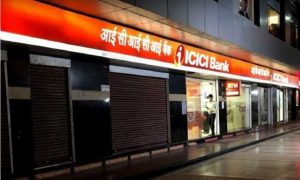If tax amounts to more than Rs 10,000 per year, taxpayers need to pay advance tax in quarterly installments.
Also Read- Post Office Time Deposit Scheme: Interest Rates And Other Details
Income Tax: In India, advance tax refers to the tax that is paid by individuals, companies, and businesses in advance, rather than waiting to pay it all in a lump sum at the end of the financial year.
For salaried individuals, advance tax is mostly taken care of through TDS by employers. But other forms of income such as interest on savings bank accounts, fixed deposits, rental income, bonds, or capital gains increase the tax liability. One’s tax liability needs to be estimated beforehand.
If tax amounts to more than Rs 10,000 per year, taxpayers need to pay advance tax in quarterly installments (June, September, December and March).
Self Assessment Tax means the amount that a taxpayer pays on the requisite income after deducting advance tax and Tax Deducted at Source (TDS).
It refers to the additional tax paid by an individual or entity to the government after calculating their total tax liability for a particular financial year. This is usually done when the taxpayer finds that the tax already paid, either through TDS (tax deducted at source) or advance tax, is less than the actual tax liability.
Self-assessment tax is calculated based on the income tax rates and rules applicable for that particular financial year. The taxpayer can pay the self-assessment tax online through the income tax department’s website or by visiting a designated bank branch.
Read More:- IRCTC Update: Indian Railways Cancels Several Trains Today. Check List Here
Any tax paid on or before March 31st is treated as advance tax paid during the same FY. The deposit of advance tax is made through challan ITNS 280 by ticking the relevant column, i.e., Advance Tax.
Who Is Liable To Pay Advance Tax?
As per section 208, every person whose estimated tax liability for the year is Rs 10,000 or more, shall pay his tax in advance, in the form of ‘Advance Tax’. In this part you can gain knowledge on various provisions relating to payment of advance tax by a taxpayer.
Also Read– Loan Against Mutual Funds: Eligibility, Interest Rates And Other Details
How is Advance Tax Calculated And Paid?
Advance tax is calculated as given below:
a) In case of all assessees (other than the eligible assessees as referred to in section 44AD and 44ADA of the Income Tax Act):
At least to 15% On or before June 15
At least to 45% On or before September 15
At least to 75% On or before December 15
100% On or before March 15
Also Read–Financial sector stable, worst of inflation behind us’: RBI Governor Shaktikanta Das
b) In case of eligible assessee as referred to in section 44AD and 44ADA: 100% On or before March 15.
The presumptive taxation scheme of section 44AD is designed to give relief to small taxpayers engaged in any business (except the business of plying, hiring or leasing of goods carriages referred to in section 44AE).
The presumptive taxation scheme of section 44AD can be adopted by following persons :
1) Resident Individual
2) Resident Hindu Undivided Family
3) Resident Partnership Firm (not Limited Liability Partnership Firm)
Also Read–PPF calculator: You Public Provident Fund account can make you a crorepati. Here’s how
A person resident in India engaged in following professions can take advantage of section 44ADA:-
1) Legal
2) Medical
3) Engineering or architectural
4) Accountancy
5) Technical consultancy
6) Interior decoration
7) Any other profession as notified by CBDT
How Is Self-Assessment Tax Calculated And Paid?
Self-Assessment Tax Calculation: After filling out your ITR form with the TDS and advance tax details (if paid), the system computes your income and checks whether tax is still payable. You need to pay it and then fill in the challan details in the return before submitting it.
Who Is Not Liable To Pay Advance Tax?
A resident senior citizen (i.e., an individual of the age of 60 years or above during the relevant financial year) not having any income from business or profession is not liable to pay advance tax.



































